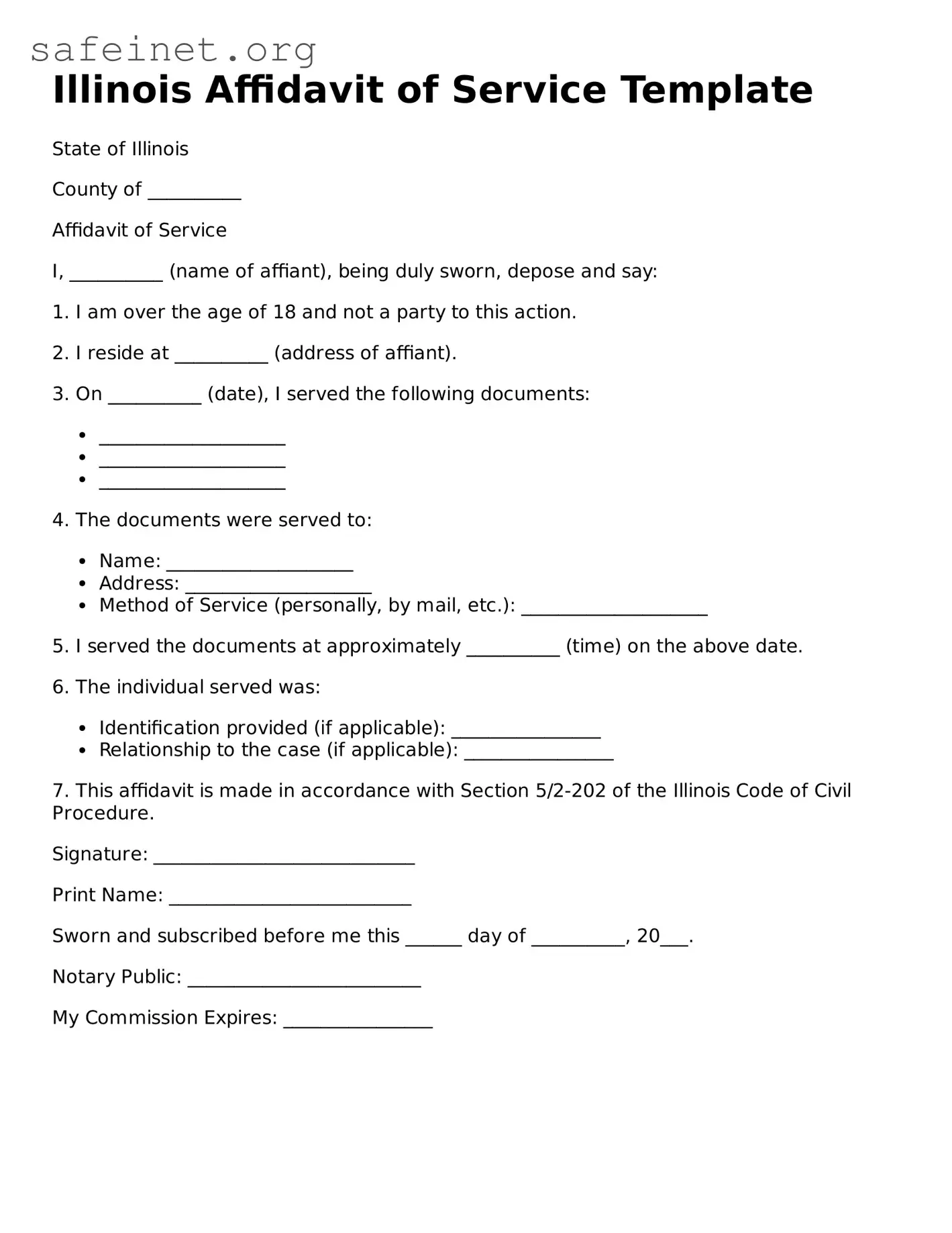What is the Illinois Affidavit of Service?
The Illinois Affidavit of Service is a legal document that verifies that a specific legal document has been delivered to the appropriate parties. It serves as proof that a party has been formally notified of legal actions, ensuring compliance with court procedures. This affidavit is often used in various legal contexts, including civil cases, divorce proceedings, and more.
Who is responsible for filing the Affidavit of Service?
The party who initiated the legal action, often referred to as the plaintiff or petitioner, typically files the Affidavit of Service. This responsibility can also fall to a designated process server or individual who has delivered the documents in question. It is crucial that this affidavit is submitted promptly to ensure that the case proceeds without any delays.
How do I complete the Affidavit of Service?
To complete the Affidavit of Service, you'll need to provide detailed information regarding the service of the documents. This includes the date and time of service, the method of service (such as personal delivery or mailing), and the name and address of the individual served. Additionally, the person who performed the service must sign the affidavit in front of a notary public to verify its authenticity.
Is notarization required for the Affidavit of Service?
Yes, notarization is a critical step in the completion of the Affidavit of Service. The individual who serves the legal documents must sign the affidavit in the presence of a notary public. This not only helps to confirm that the service was properly executed, but it also adds a layer of legitimacy to the document when presented in court.
What happens if the Affidavit of Service is not filed?
If the Affidavit of Service is not filed, the court may consider the case incomplete or improperly served. This can lead to delays, the dismissal of the case, or additional complications down the line. It is essential to ensure that this affidavit is properly completed and submitted to move forward with legal proceedings.
Can the Affidavit of Service be challenged?
Yes, the Affidavit of Service can be challenged. A party who disputes the validity of the service may contest the affidavit in court. They can argue that they were not properly served or that the affidavit contains inaccuracies. If a court finds issues with the affidavit, it may require that the documents be served again.
What documents do I need to serve along with the Affidavit of Service?
The specific documents required can vary based on the nature of your case. Generally, the Affidavit of Service should accompany the original legal documents being served, such as a complaint, summons, or notice. Always check with your legal counsel or the court for the precise requirements related to your situation.
Can I use a process server for the Affidavit of Service?
Absolutely, utilizing a process server is common practice and often recommended. A professional process server is knowledgeable in the rules and regulations governing service of process. They can ensure that the Affidavit of Service is completed accurately and filed in a timely manner, which can significantly reduce the chances of complications later on.
Where do I file the Affidavit of Service in Illinois?
The Affidavit of Service should be filed with the court where your original case is being heard. This ensures that the court has a complete record of the service of process. It's a good idea to keep a copy of the affidavit for your own records as well, as it serves as proof of compliance with service requirements.
How long do I have to file the Affidavit of Service after serving the documents?
In Illinois, you typically have a limited time frame within which to file the Affidavit of Service after the documents have been served. Generally, this period is within a few days to a couple of weeks, depending on the specific court rules. It’s important to check the local rules of the court handling your case for exact deadlines. Timely filing helps ensure that your case is not jeopardized due to procedural issues.
